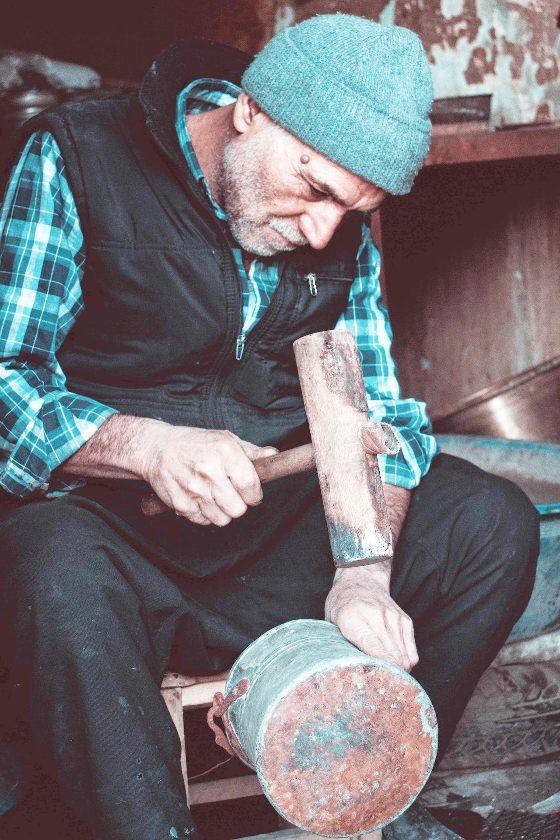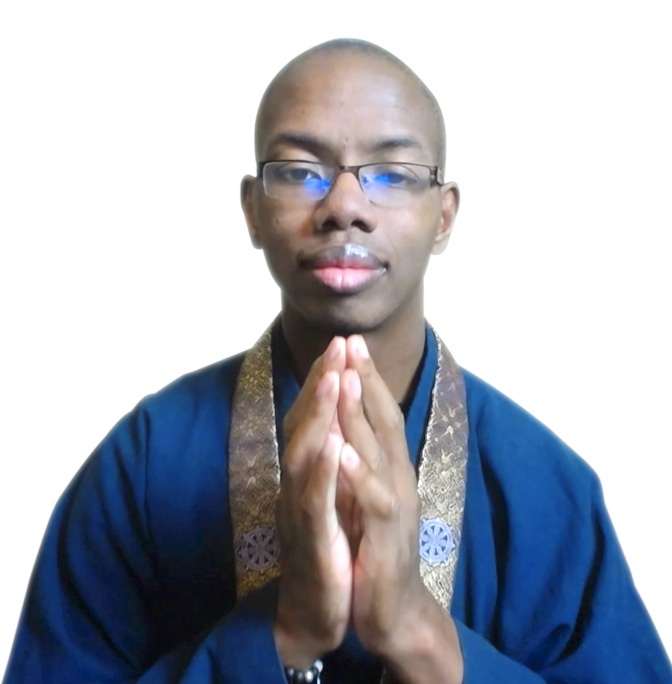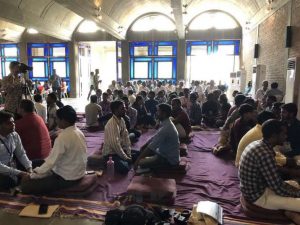In Buddhist temples, it is common to recite the Bodhisattva Vows as part of each practice period. These vows remind us of the goal of practice and reaffirm our dedication to the path. They go as follows:
• Sentient beings are numberless, I’ll save them
• Delusions are endless, I’ll see through them
• The teachings are infinite, I’ll learn them
• The Buddha way is difficult, I’ll walk the path
Part of the beauty of these vows is the way they intersect with each other. We save sentient beings by seeing through our delusions. We see through our delusions by learning the teachings. We learn the teachings by walking the Buddhist path. And when we walk the Buddhist path, we inevitably save sentient beings.
Thus, our training is not a linear path where we rush to the end. It’s a continuous, life-affirming loop that makes life better for us and for the people around us each time we travel through it.
When we take the Bodhisattva Vows, we acknowledge that suffering is part of life. And we promise to try to heal that suffering for as long as we’re alive.
It’s a beautiful practice, but it’s also overwhelming. When I first took the vows, I envisioned cosmic beings with miraculous powers working on behalf of humanity. And I wondered how I, a small, forgetful human being, could measure up to their example.
I stumbled on the answer a few months ago when my neighbor approached me with a problem. Her husband, who normally handled the yard work, had died. And she couldn’t keep up with it on her own. She wanted to know if I had the number for an affordable landscape service.
Unfortunately, I didn’t have the number of a good landscaper. So I offered her my condolences for her loss. And then I told her that I’d take care of her yard moving forward.
Now, every time I cut the grass on my property, I ride the tractor across the street and cut the grass on her property. Sometimes, my neighbor asks me to do other odd jobs, such as felling trees or trimming bushes. Which is fine, I enjoy the work, and I’m glad I can make someone’s life a bit easier.
Even better, it gives me an opportunity to live out the Bodhisattva Vows, to end (some) suffering for another sentient being.
The interaction with my neighbor has helped me to realize that the Buddha didn’t create the Bodhisattva Vows in the hope that we would snap our fingers and make the world a paradise. Rather, he was reminding us that these frail, human bodies are powerful—that we can use them to make life better for the people around us.
As Buddhists, our physical labor is one of the best gifts we can give to the people around us. We may not think of it in that way because Western culture belittles and demeans domestic work. But doing simple chores such as cutting the grass, washing the car, and taking out the trash creates ripples that improve life for everyone.
Even something as simple as starting the coffeemaker before our partner wakes up for the day can help things start on the right foot.
That may be hard to believe, but we can prove it to ourselves through a simple thought experiment. Imagine that you are hungry after a long day of work, and you can’t wait to go home and make dinner. You even know the exact recipe that you want to make, and your mouth is salivating as you imagine all of the good smells and taste sensations.
You arrive home and you walk into the kitchen to begin preparing your food. And then you realize that all the dishes you need to prepare your recipe are filthy, lying in a sink filled with dirty water. How would you feel in that moment?
At a minimum, most people would feel some level of disappointment. Others would feel some level of frustration, or possibly some anger.
It may seem small and insignificant. But the simple act of washing dishes after a meal is an effective way to ensure the people in our household don’t have to experience those feelings as a result of not being able to prepare a meal. Each time we wash dishes we remove a small bit of suffering from the world.
Now take a moment to think about how often you wash dishes in a day, a week, or even a year. Try to add up how much suffering you stop just by washing dishes, and then do the same for the other chores you perform on a regular basis. You may be pleasantly surprised by the results!
For my part, when I think about the Bodhisattva Vows, I don’t think about cosmic beings with miracle powers anymore. I think of my neighbor. I think of my family. And I wonder what small chore I can complete to help them through the day.
Namu Amida Butsu
Related features from BDG
Metta’s Fuller Circles
How does it serve others?
Developing Consideration of Others
Compassion at the Edge
What to Do with this World?













